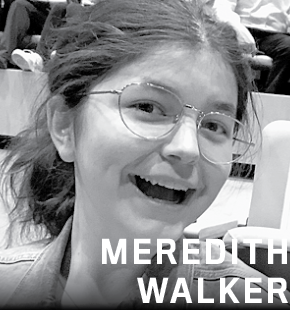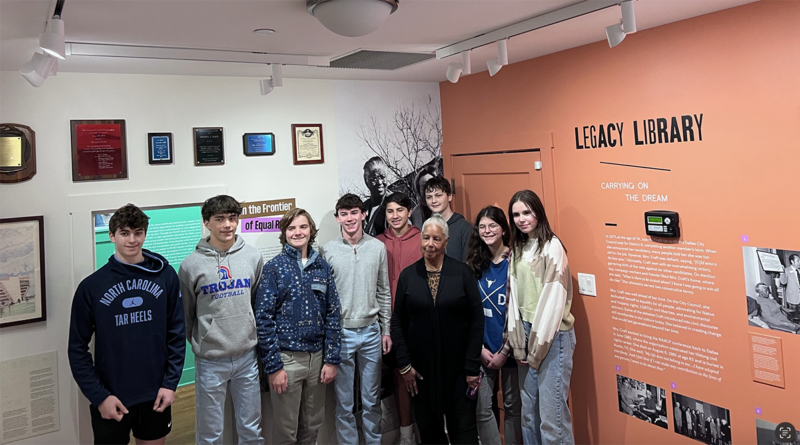Juanita Craft Civil Rights House Inspires Parish Junior

The Crossroads Academy Teen Board visited the Juanita Craft Civil Rights House last fall.
The museum, located in Craft’s former home, honors the civil rights leader’s life and accomplishments.
Craft, who started 182 Dallas chapters of the NAACP, befriended Eleanor Roosevelt while working as a bell maid at the Adolphus Hotel and worked with her to remove a postcard of Allen Brooks’ lynching. She also started a Youth Council for young African American men and women, treating them like adults and encouraging them to help their community.
So why had I never heard of her before? Following my visit with the Crossroads Academy Teen Board, I spoke with Patricia Perez, a frequent volunteer at the museum and former member of Craft’s Youth Council, to learn more about the Dallas civil rights pioneer and her legacy.
Craft faced many challenges, both in her childhood and later in life. When she was 16, her mother was denied treatment for tuberculosis at a hospital. Despite Craft going to the hospital every day and requesting help again and again, her mother died in 1918.
In response to African Americans moving into the neighborhood, people bombed 10 houses surrounding Craft’s on Warren Avenue. When Craft became a major civil rights leader, rising above the skepticism of men and the hatred of her White neighbors, the government started to surveil her and tap her house.
One of Craft’s core principles was, “If it’s wrong, you do something — you talk about it,” Perez said.
Despite the challenges and potential dangers she encountered, Craft continued to fight against discrimination in Dallas and encouraged youth to do the same. With teenagers like Perez, Craft protested the fact that African American people were only allowed to go to the fair one day a year, contributing to the fair’s desegregation. They also raised money for the NAACP, cleaned up litter, and more.
At the height of her activism, the Rev. Martin Luther King Jr. met with Craft at her South Dallas house, where the museum is today.
“She made us feel powerful, in an era when we were made to feel powerless,” Perez said.
Ultimately, Craft believed in justice, persistence, and, more than anything, that all people are humans, and all humans are equal. In an increasingly convoluted world, it’s more critical than ever to hold on to that principle.
Candace Thompson, the museum committee’s community outreach manager, stated that the museum and board sustain Craft’s legacy “through robust programming, fundraising, and building up new leaders in the community.”
Meredith Walker, a junior at Parish Episcopal School, urges those looking to support the Dallas community while having a steady source of service hours to join her on the Crossroads Academy Teen Board. Those interested can contact [email protected] or reach Meredith directly at [email protected].







